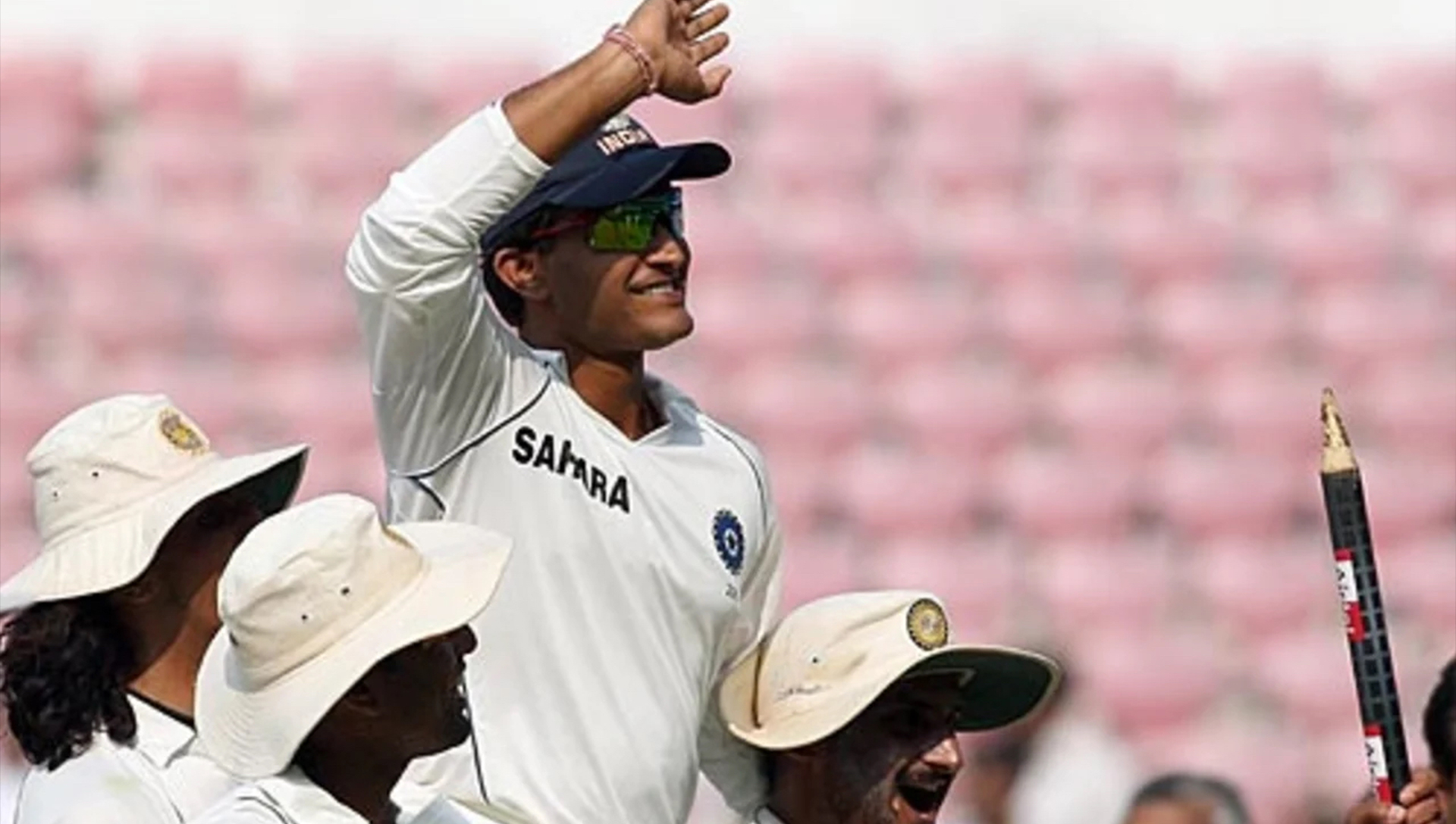BENGALURU: 2000 was arguably the toughest year for Indian cricket. The team and the public were reeling under the shock of the match-fixing saga which enveloped many prominent names such as Mohd. Azharuddin, Ajay Jadeja and Nayan Mongia.
All three of them were convicted by the Central Bureau of Investigation (CBI) and banned by the Board of Control for Cricket in India (BCCI). The allegations were also flung at the legendary Kapil Dev by his own former team-mate Manoj Prabhakar.
The cricketers, who were accorded demi-God status, were being summarily lampooned by the media and hoi polloi alike. The faith of Indian people – who are deliriously passionate about the sport – in cricket and cricketers was completely jeopardised.
The iconic Sachin Tendulkar was completely loath to continue as a captain.
Amid such a gloomy scenario, the BCCI decided to appoint Sourav Ganguly – then a 27-year-old batsman – as the captain of the team. By then, Ganguly had established himself as one of the leading Indian cricketers with 9 ODI and 7 Test tons under his belt. But he had a huge responsibility of not just rebuilding but also restoring the credibility of the team.
‘Audacity and aggression’
The first unmistakable quality of Ganguly as a leader which became evident was that he relished being the leader of the pack. He took to captaincy like a fish to water and started asserting himself, both on and off the field. The personality of a leader invariably seeps into the character of the team and that’s what happened with the Indian team as well.
Under his tutelage, Indian cricketers – who were once seen as a meek tribe – started expressing themselves sans any inhibitions on the field since they had the license from the leader. They were told to give the opposition players a taste of their own medicine if they were sledged or verbally assaulted.
In 2001, when the Australian team – the best in the world at that time – visited India, their captain Steve Waugh called India the “final frontier” since no Aussie team had won the Test series on Indian soil since 1969.
The Australian had routed almost all the teams in their backyard and was on a roll. Their players were not extremely skilful but wildly aggressive on the field. Waugh had finetuned sledging into a fine art and dubbed it as ‘mental disintegration’. However, Ganguly and Indian cricketers stunned the Aussies with their performance as well as unbridled aggression.
Ganguly made Waugh wait many times and deliberately arrived late for the toss to get under his skin. Winning the Kolkata Test after following on was perhaps the rite of passage in the annals of Indian cricket. Not only it totally changed the trajectory and character, it also instilled enormous self-belief and resolve in the cricketers.
‘A captain to die for’
Yuvraj Singh once said one can die for a captain like Ganguly. The sentiment was also echoed by the likes of Harbhajan Singh, Virender Sehwag, Zaheer Khan and Ashish Nehra – all of whom were backed to the hilt and assiduously nurtured by him. Just like Imran Khan, the former Pakistan captain, Ganguly had an eye for talent and believed in firmly throwing his weight behind them.
Right from the beginning of his captaincy tenure, Ganguly identified a few cricketers who he thought had the temperament and talent to win matches for India and stood by them like a rock during their bad times.
Many a time, selectors wanted to drop Yuvraj, Sehwag and Zaheer when they hit the rocks but Ganguly ensured they were not banished into the wilderness. Though tough as nails as a leader, he was seen as a mentor to youngsters who had the knack of getting the best out of them on the field. Off the field, he was stern but friendly and fair with them and didn’t mind indulging in banter. He let them be their own person off the field and didn’t impose gratuitous restrictions on them as long as the basic code of conduct was followed.
The players he had steadfastly backed eventually became legends in their own rights and later helped India win World T20 in 2007 and World Cup in 2011.
‘Captaincy record’
As a captain, Ganguly led India in 146 ODIs and 49 Tests. Out of those, India emerged winners in 76 ODIs and 21 Tests. These are impressive numbers but they don’t tell the entire tale or map the impact. In the 1990s, India was a strong team at home but had won just one Test in the decade outside Indian soil; that too against a lowly Sri Lankan side in 1993. But during Ganguly’s tenure, India began winning overseas Tests – be it in England, Australia or Pakistan. He couldn’t win the Test series in Australia and England but managed to draw them which was a fine achievement back then.
More than statistics, Ganguly will always be remembered for overhauling the character of the team, picking up pieces and rebuilding it from scratch and mentoring an array of supremely gifted youngsters who later became great cricketers.

